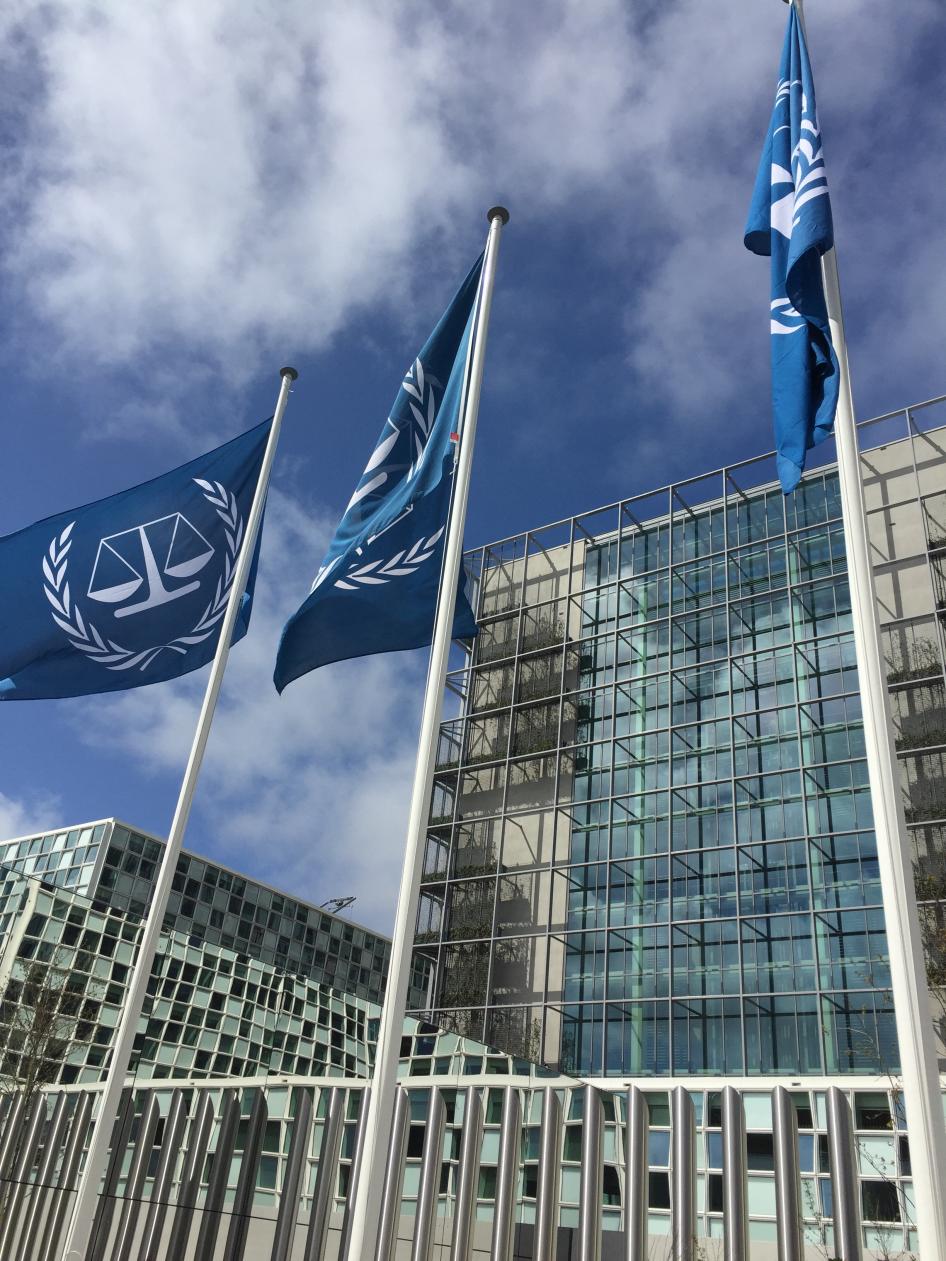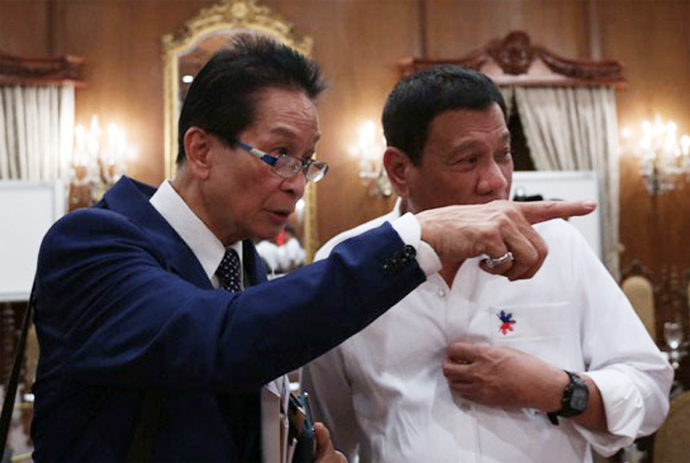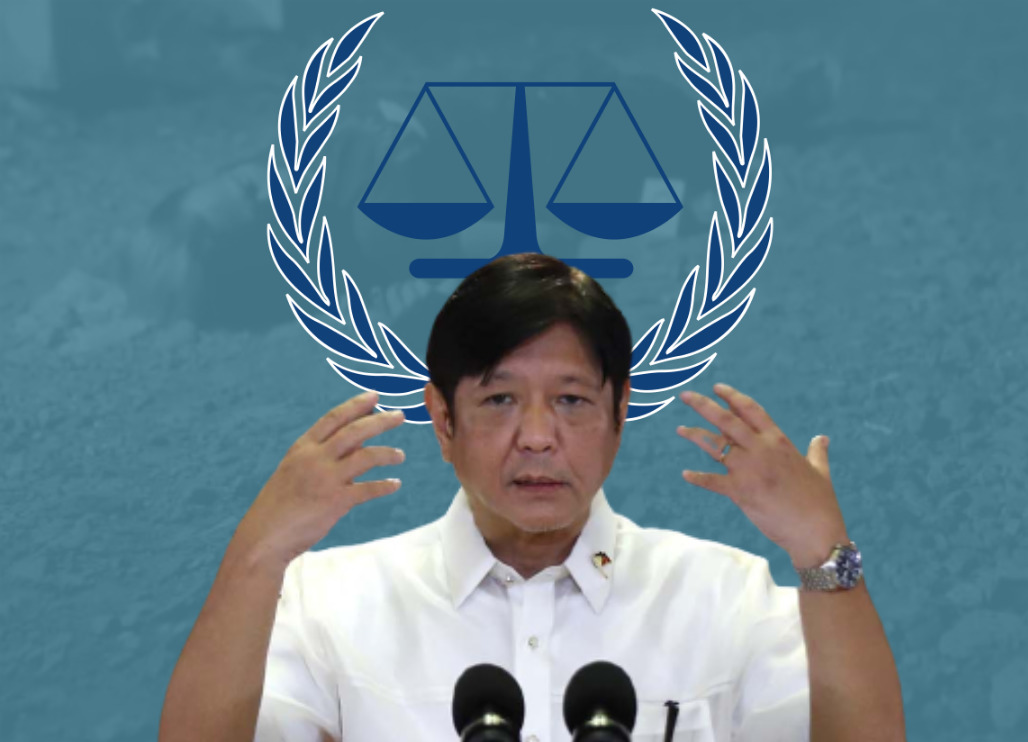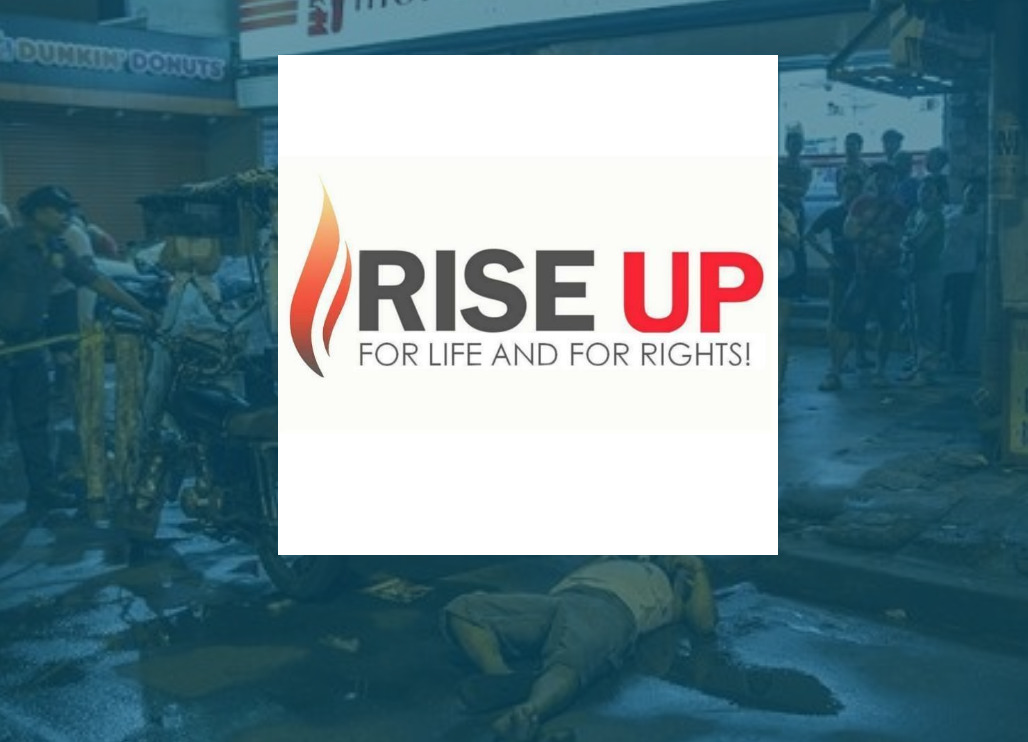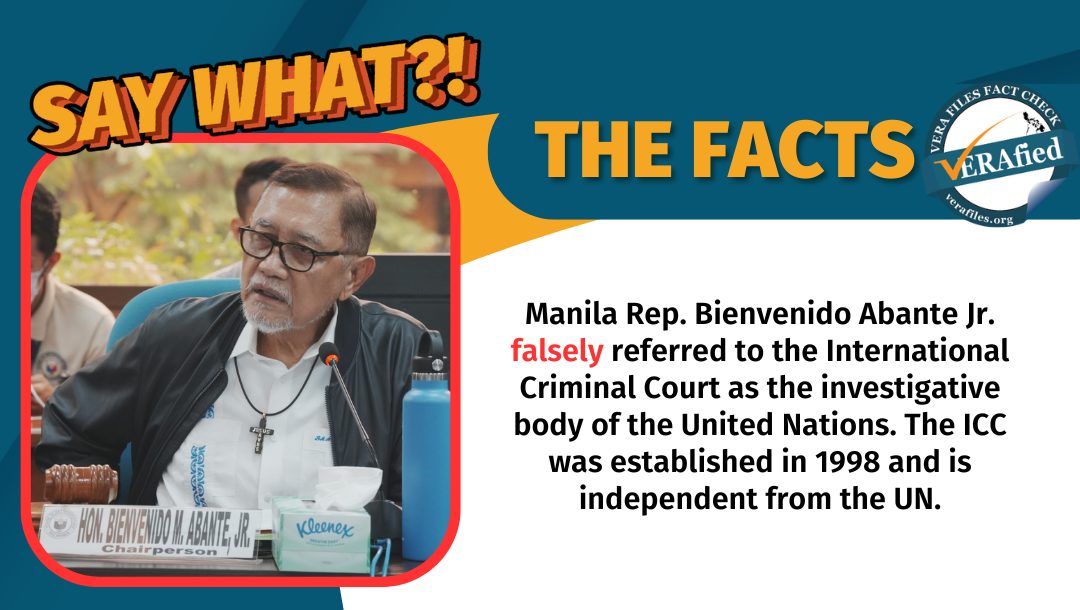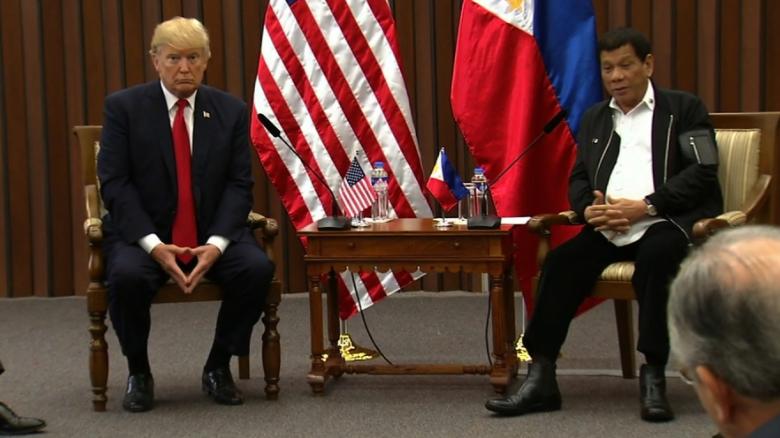
US Pres. Donald Trump and Philippine Pres. Rodrigo Duterte meet in Manila during the 2017 Asean Summit. Malacañang file photo.
Next month, March 17, the withdrawal of the Philippines from the Rome Statute, the founding treaty for the International Criminal Court, will take effect- one year after the Duterte government deposited its official notification with the United Nations Secretary-General in New York.
The ICC, in its statement, said last year that while they regret the Philippine government’s withdrawal from the Rome Statute, “A withdrawal has no impact on on-going proceedings or any matter which was already under consideration by the Court prior to the date on which the withdrawal became effective; nor on the status of any judge already serving at the Court.”
At least three separate communications have been filed with the ICC accusing President Duterte and officials of his government of committing crimes against humanity citing extra judicial killings in the war against drugs as well as killings by the so-called Davao Death Squad when Duterte was Davao City mayor.
Those who filed the cases against Duterte in the ICC that include Sen. Antonio Trillanes IV, Repair Alejano, lawyer Jude Sabio and relatives of the victims of the drug war,hope that the case will move up to the investigation stage before March 17. Right now, ICC Prosecutor Fatou Bensouda is in the preliminary examination stage, monitoring developments in the country.
Speaking of reports, the Asia Reassurance Initiative Act (ARIA) that U.S. President Donald Trump signed last Dec. 31 contained several observations damning to the Philippines in the area of human rights.
ARIA commits funds for the Indo-Pacific region amounting to $1.5 billion over the next five years 1) to advance United States foreign policy interests and objectives in the Indo-Pacific region.
This is to be achieved by improving the defense capacity and resiliency of partner nations to resist coercion and deter and defend against security threats.
There’s a part in the Legislation that disclosed the findings of the Congress on the Philippines in the area of human rights. It states: “There have been unacceptable human rights developments in— the Philippines, which has been identified by Freedom House as ‘Partly Free’, and where there are continued disturbing reports of extra-judicial killings.”
The Philippines is lumped with Myanmar where “the Department of State has declared that the violence against the Rohingya constitutes ethnic cleansing” and China “where forced disappearances, extralegal detentions, invasive and omnipresent surveillance, and lack of due process in judicial proceedings remain troublesome.”
In the Authorization of Appropriations, it states, “None of the amounts appropriated… may be made available for counter narcotics assistance for the Philippine National Police unless the Secretary of State determines and reports to the appropriate committees of Congress that the Government of the Philippines has adopted and is implementing a counter narcotics strategy that is consistent with international human rights standards, including investigating and prosecuting individuals who are credibly alleged to have ordered, committed, or covered up extrajudicial killings and other gross violations of human rights in the conduct of counter narcotics operations.”
ARIA states that the promotion of human rights and respect for democratic values in the Indo-Pacific region is in the United States’ national security interest; continued support for human rights, democratic values, and good governance is critical to a successful United States diplomatic strategy in the Indo-Pacific; and strong support for human rights and democracy in the Indo-Pacific region is critical to efforts to reduce poverty, build rule of law, combat corruption, reduce the allure of extremism, and promote economic growth.
